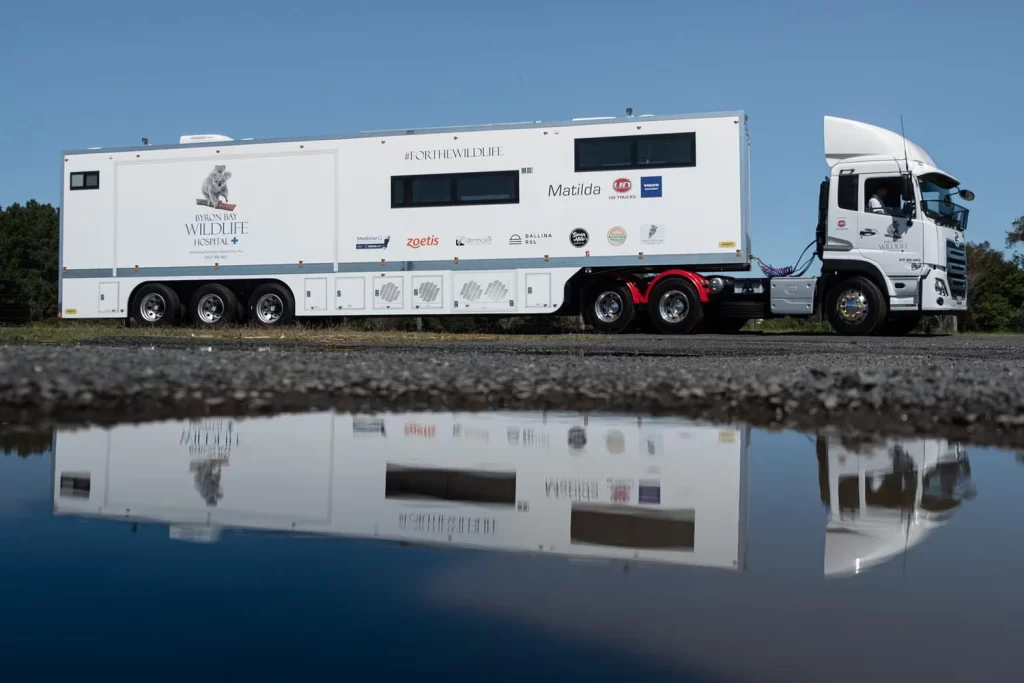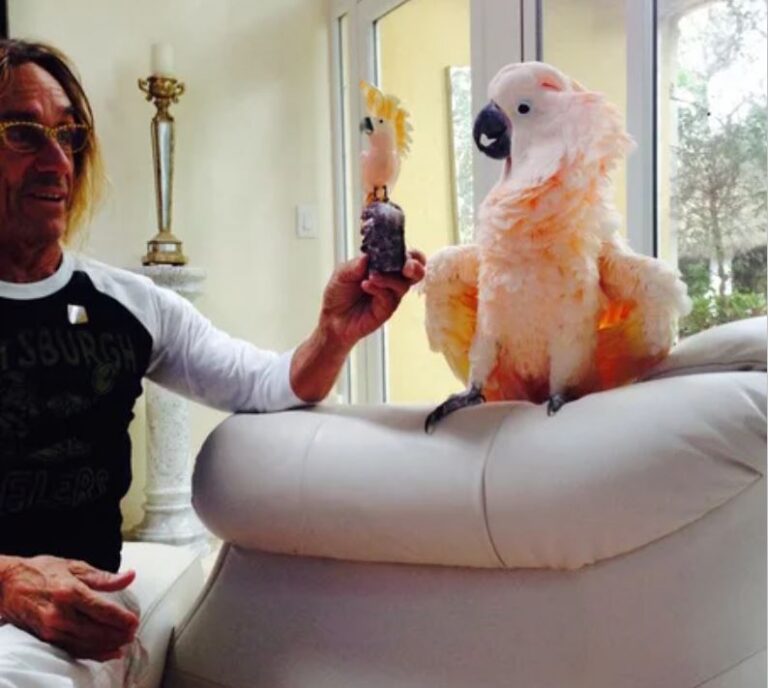Byron Bay Wildlife Hospital Founder and CEO Dr Stephen Van Mil was already working on plans for a large mobile wildlife hospital when the devastating Black Summer bushfires of 2019-2020 struck.
The potential to improve wildlife survival rates was huge.
A bricks and mortar hospital takes a lot of capital and even more red tape to build, so the idea of a mobile hospital was borne from a desire to fast-track development. The bonus was that it could be relocated to disaster locations facilitating faster treatment. That meant reduced risk of infection or dehydration, as well as less trauma for already injured and scared wild animals.
Byron Bay Wildlife Hospital was established as a registered charity in September 2019. By June the following year, it had raised over half a million dollars and was ready to start building. The World Wildlife Fund contributed additional funding to the cause.
Then there was the contribution of Biggy Pop, avian son and much-loved companion of the Godfather of Punk Iggy Pop. A cockatoo with an Instagram account of his own, Biggy was a natural choice for patron of the new hospital in a country where so many of his relatives were suffering. He got the fledgeling hospital publicity it couldn’t have hoped for otherwise. A rescued cockatoo himself, Biggy wants to help the humans in Australia look after his relatives there in the same way.
Within a few months Foundation Vet Dr Bree Talbot had joined Byron Bay Wildlife Hospital. She and vet nurse Hayley Farley began treating Aussie wildlife at Lennox Head, and then in November 2020, the star of the show “Matilda” was launched on the world.
Matilda is a fully-equipped and licensed vet hospital designed to fit in a custom-built semi-trailer. Clever engineering means Matilda can expand to 3.6 metres wide, giving vets all the space they need to treat animals – but the walls retract for travel so that she’s legal on the road. Inside, she’s kitted out with X-ray, ultrasound, endoscopy, anaesthesia and intensive care. With the assistance of WWF-Australia, Radincon were delighted to provide support with the X-ray and ultrasound systems.
‘These are vital pieces of equipment for our hospital. Instant imaging allows us to diagnose problems faster, helping to improve survival rates’, said Dr Bree. They also help us to identify trends affecting the health of particular species.
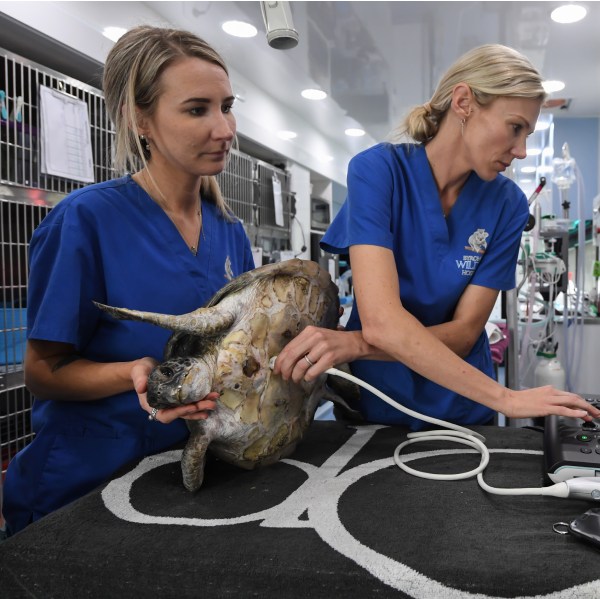
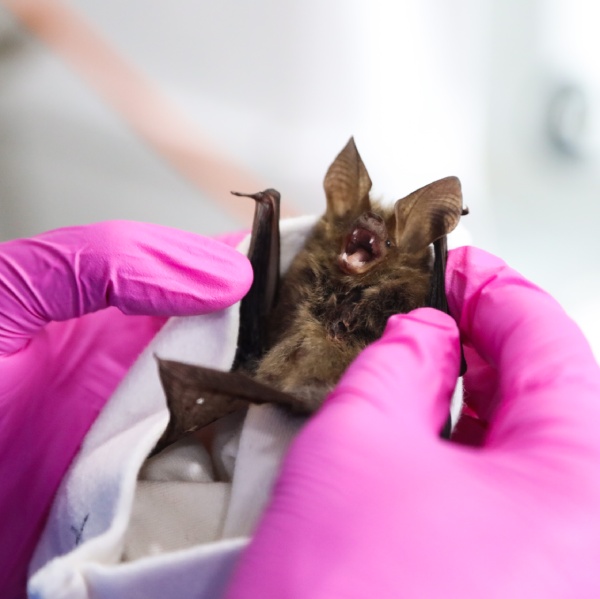
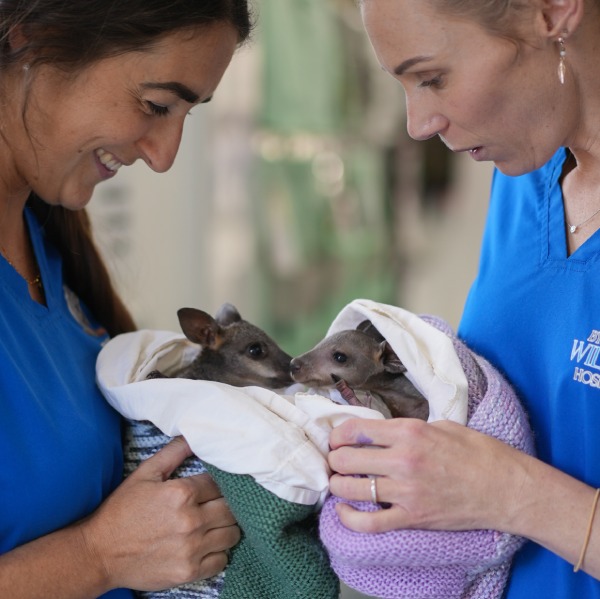
Photo credits: Biggy Pop, Nina Alu | Sea Turtle ,James D Morgan Getty Images | All others Byron Bay Wildlife Hospital
In addition to all this veterinary equipment, Matilda has solar panels to keep her going and a satellite dish to keep her connected to the world. All this means top quality care available around the Northern Rivers region or wherever in Australia bushfires, floods and natural disasters put our wildlife at risk.
It’s now three years since Byron Bay Wildlife Hospital unveiled Matilda to the world. Since then, the charity has treated over 5000 animals in Matilda’s facilities. It sounds like a great Australian success story, but unfortunately, the future of the entire operation is in doubt.
In February 2023, the NSW Government announced $6 million of funding for Byron Bay, to cover the four years from July 2023 to June 2027. At a cost of around $555 per animal treated, that would care for over 2,700 patients per year. But on 23 June, just 8 days before the funding was expected to begin, the grant application was rejected. As we head into what’s predicted to be a fiery summer, Byron Bay Wildlife Hospital has to look elsewhere for the funds to keep going.
Friends and supporters are rallying round.
Tex Perkins, The Cruel Sea and Bluesfest put on a special WildAid fundraiser concert in October. Biggy and Iggy made a special announcement at the event. There’s a public campaign to raise funds – and just as importantly, to pressure the NSW Government into changing its mind.
‘The public support and media coverage we receive is sustaining our vet team to keep doing this essential work for wildlife’, said Dr Van Mil. ‘Every little bit helps. A donation, a sponsor, a letter to the government or spreading the word about our work helps our case.’
Find out all the ways you can help keep Australia’s largest mobile wildlife hospital on the road here.

